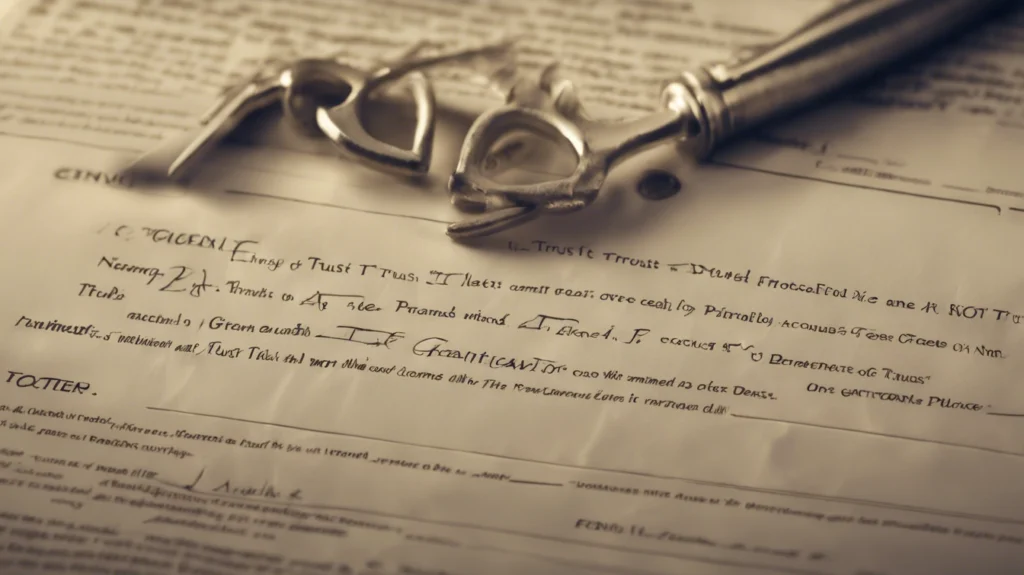Understanding the Totten Trust in New York
In the complex world of estate planning, the Totten Trust often stands out as a unique and straightforward tool. If you’re planning your estate in New York, understanding the nuances of a Totten Trust can be vital for ensuring that your assets are distributed according to your wishes without unnecessary legal complications. At Morgan Legal Group, we aim to provide our clients with clear, actionable information to help them make informed decisions about their estate plans. This article will explore the Totten Trust, its benefits, and how it functions under New York State law.
What is a Totten Trust?
A Totten Trust, also known as a “payable-on-death” account, is a type of revocable trust specifically designed for bank accounts. This legal arrangement allows the account holder to name a beneficiary who will receive the funds in the account upon the account holder’s death. The beauty of a Totten Trust lies in its simplicity and the fact that it avoids the probate process, making it a popular choice for those looking to pass on assets quickly and with minimal legal intervention.
How Does a Totten Trust Work?
Setting up a Totten Trust is relatively straightforward. The account holder, also known as the trustee, opens a bank account in their name with instructions that the funds should be transferred to a named beneficiary upon their death. During the account holder’s lifetime, they retain full control over the account, including the ability to deposit, withdraw, or close the account entirely. The trust remains “revocable,” meaning the account holder can change the beneficiary or the terms of the trust at any time.
Upon the account holder’s death, the named beneficiary needs only to present a death certificate to the bank to claim the funds. This process bypasses probate, allowing for a faster and more efficient transfer of assets.
Advantages of a Totten Trust
The Totten Trust offers several advantages that make it an attractive option in estate planning:
- Avoids Probate: As mentioned earlier, one of the primary benefits of a Totten Trust is that it bypasses the probate process. This means the beneficiary can access the funds quickly without waiting for probate court approval, which can be time-consuming and costly.
- Simplicity: Establishing a Totten Trust is easy and does not require a complex legal process. It can often be done at the bank when opening or managing an account.
- Control: The account holder retains full control over the account during their lifetime, including the right to revoke or modify the trust at any time.
- Privacy: Because the transfer of funds occurs outside of probate, the details of the account and its beneficiary remain private and are not part of the public record.
- Cost-Effective: Unlike some other estate planning tools, a Totten Trust typically does not involve high legal fees or administrative costs.
Limitations of a Totten Trust
While the Totten Trust offers several benefits, it is not without its limitations. It’s important to be aware of these potential drawbacks to ensure that a Totten Trust is the right choice for your estate planning needs.
- Limited to Bank Accounts: A Totten Trust applies only to bank accounts. If you have other types of assets, such as real estate, investments, or personal property, you will need to consider additional estate planning tools to address those assets.
- Beneficiary’s Rights: The named beneficiary has no legal rights to the account while the account holder is alive. This means they cannot access the funds or make decisions regarding the account until the account holder passes away.
- No Protection from Creditors: Because the account remains in the account holder’s name during their lifetime, it is not protected from creditors. If the account holder has outstanding debts, creditors may be able to access the funds in the account to satisfy those debts.
- Potential for Disputes: While the Totten Trust is intended to simplify the transfer of assets, disputes can still arise, particularly if the account holder changes the beneficiary or if there are questions about the account holder’s intentions.
Setting Up a Totten Trust in New York
In New York, setting up a Totten Trust is relatively simple, but it’s important to follow the correct procedures to ensure that the trust is legally valid. Typically, you can establish a Totten Trust by going to your bank and requesting that your account be designated as a payable-on-death (POD) account. You will need to provide the bank with the name of your chosen beneficiary, and the bank will update the account accordingly.
It’s essential to keep your beneficiary information up to date. If your circumstances change—such as through marriage, divorce, or the birth of a child—you may want to update your beneficiary designation to reflect your current wishes. Failing to update this information could result in the funds being distributed to an unintended beneficiary.
When to Consider a Totten Trust
A Totten Trust is a good option if you want a simple, cost-effective way to ensure that a specific sum of money is passed on to a beneficiary without going through probate. It is particularly useful for individuals who have modest estates or those who want to provide immediate financial support to a loved one after their death.
However, suppose your estate is more complex or includes significant assets beyond bank accounts. In that case, you may need to consider additional estate planning strategies, such as creating a will, establishing a living trust, or setting up other types of trusts that can address your broader estate planning needs.
Conclusion
Understanding the Totten Trust is crucial for anyone involved in estate planning, particularly in New York, where probate can be a lengthy and costly process. At Morgan Legal Group, we are committed to helping our clients make informed decisions about their estate plans, ensuring that their assets are protected and their wishes are honored. Suppose you’re considering a Totten Trust or any other estate planning tool. In that case, we encourage you to consult with our experienced attorneys to explore your options and develop a comprehensive plan that meets your needs.
Contact Morgan Legal Group today to schedule a consultation and learn more about how we can assist you with all your estate planning needs in New York City.









